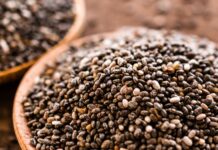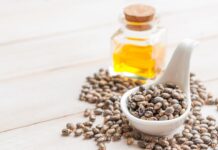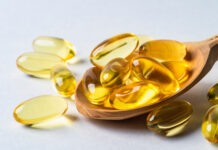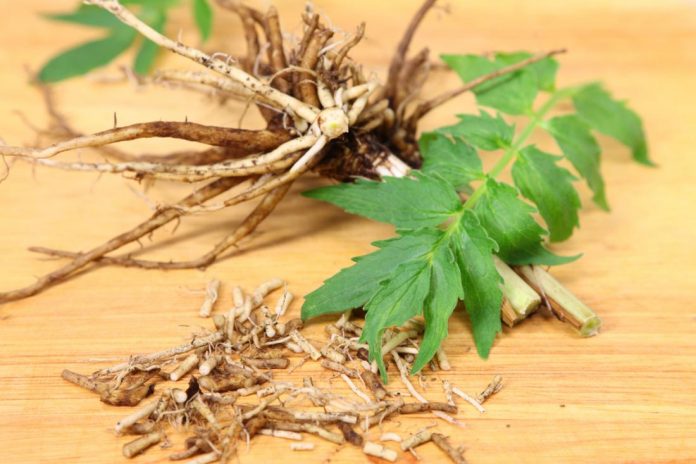The botanical name of this plant in Latin is Valeriana officinalis L. Valerian is a perennial plant found throughout Europe and North Asia.
Valerian is grown for its root which has many medicinal properties.
Valerian is a plant especially used for its sedative activity and below are the many medicinal properties of the Valerian root.
Valerian Medicinal Properties
- Antispasmodic
- Anticonvulsant
- Hypnotic
- Anti Arrhythmia
- Anti Anxiety
- Insomnia
- Sleep disorders
- Panic Attack
- Anxiety crisis
- Anti Depression
- Abdominal cramps
- Irritability
- Nervous Tension
- Psychogenic dizziness
- Irritable Bowel Syndrome
- Palpitations
- Headache
- Tremors
- Migraines
Origin and culture of valerian plant
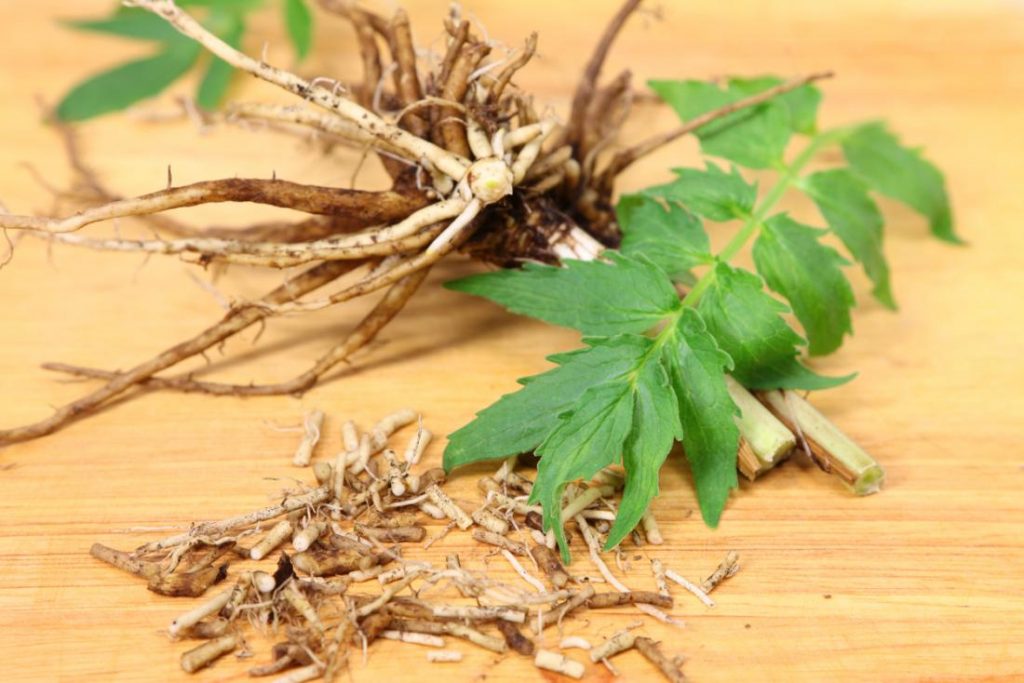
Valerian belongs to the family of Valerianaceae, they are herbaceous plants that live in wetlands, forests, along streams up to 2000 m above sea level and are found in the wild in regions with temperate climate and Costs.
This plant originates from central Europe, although now it has been naturalized in Western Europe and North America.
Originally, the term “valerian” comes from the Latin (plant to have strength) probably because this plant is useful to stay healthy.
The most widely cultivated and most commonly used species for its medicinal characteristics is Valeriana officinalis L. In the garden, Valerian is very majestic and elegant and can easily reach 1.80 m in height.
The root consists of a rhizome that reaches up to 30 cm in length and gives off a not very pleasant odor. Valerian leaves are of a beautiful dark color, while its flowers are small white or pink and hermaphroditic.
The flowers appear in the spring and summer and are fragrant by a rather unpleasant odor. Valerian can be considered a polymorphic plant, namely that it takes different aspects according to the climatic conditions where it develops.
Valerian is often wild, especially in wetlands, but it can also be cultivated in the garden where it will grow without too much difficulty. It is a plant that grows very well in the sun and partial shade, but prefers temperate climates and is resistant to negative temperatures.
Valerian is suitable for almost all types of soil, but prefers heavy, clayey, neutral or even slightly basic soils and requires a moist but well-drained soil. This plant can be reproduced by cuttings or by seeds.
You Can Also Read : 5 Natural Home Remedies To Overcome Sadness
Valerian, composition
The chemical composition of the plant is responsible for its virtues, so it is important to know its components. It is one of the richest plants in terpene substances of nature, in particular the sesquiterpenes and iridoids.
Valerian also has several essential oils in its components borneol, eugenol and Valénol. These essential oils are very varied and are found between 0.5 and 1% in the root of the plant.
There are also alkaloids such as Tobiloba and Chatinine. In the roots of Valerian, is also present the gamma-aminobutyric acid, known as GABA which is a potent sedative sleep inducing.
Valerian, dosage and dosage
To avoid side effects, you should never exceed the dose of Valerian extract from 500 to 600 mg per day.
In any case, it should never be forgotten that you should consult your family doctor before taking any medicinal plant, because even if Valerian is a natural remedy, it does not mean that you know its effects and that they are harmless.
There are capsules of valerian and also of the extract available in the form of drops. In the case of drops, 20 drops diluted with a little water 2 to 3 times per day according to medical prescription.
Also present in food supplements stores: The mother tincture, great because it preserves the active ingredients of the plant, 1 ml to 3 ml up to several times a day.
Attention: To feel the beneficial effects of this plant it sometimes takes several weeks, especially for cases of chronic insomnia.
Valerian, benefits and virtues
As we have seen above, Valerian has many medicinal properties.
In fact, the plant contains acids and valirics iridoids, which have the ability to inhibit the action of the transaminase of gamma-aminobutyric acid (GABA), which usually carries on the function of degrading the metabolic level of acid Gamma-aminobutyric, a neurotransmitter.
This chemical mediator determines neuronal excitability in the nervous system. Many active ingredients are contained in valerian and possess sedative and hypnotic virtues, which means that Valerian is able to promote sleep.
The specific substances contained in the root of the plant can reduce the time it takes to fall asleep and improve the quality of sleep. Therefore, Valerian is indicated in case of insomnia due to anxiety and to treat sleep disorders.
Also mentioned are the action carried out by terpenes and flavonoids, these active ingredients can act as antagonists with adenosine receptors, which determines the antispasmodic action on the muscles.
This is why Valerian is also very useful if you suffer from cramps or irritable bowel syndrome. Valerian is also known to reduce menstrual pain.
This medicinal plant can also be prescribed for those who want to quit smoking. It also has the ability to eliminate the state of agitation and irritability, from this point of view it is really effective.
To produce acceptable effects, it requires a constant administration of at least one week.
In a nutshell, when the case of anxiety arises, taking a dose of Valerian proves useless, unless its use is constant and as I have already said, its anxiolytics properties are very soft.
Valerian, precautions for use and side effects
It is far preferable to use only pharmaceuticals rather than fresh or dried plants (herbal teas). For pharmaceuticals, we have a dose control that will avoid overdose.
Like all medications (even if they are of natural origin, xenobiotics should be considered drugs) and there are doses to consider. For Valerian, it is necessary to avoid taking daily doses too high and also to avoid its use for a long time.
Its continuous use should never last more than three months. The most common symptoms of overdose are nausea, headache, and time difference syndrome.
At high doses, interactions as well as side effects are possible. Prolonged use may give hépatotoxité (a study revealed an elevation of transaminases).
Valerian also multiplies the effects of psychotropic drugs such as:
- Benzodiazepines.
- Barbiturates.
- Opioids.
Pharmacodynamic Interactions: Valerian should not be used in combination with barbiturates, as excessive sedation may occur.
Recently, cases of delirium with tachycardia have been reported in patients taking high doses (900 mg per day) of Valerian dry extract for long periods of time.
Valerian is not recommended for pregnant women, lactating mothers and children. Attention, this plant has the ability to induce malformations in the fetus.
Finally, the abusive taking of valerian causes drowsiness, caution is necessary and in no case you have to take valerian while driving or during working hours, as this can distract the subject and cause accidents.
Valerian, notice
Valerian is a medicinal plant that is very rich in various active principles, the most important of which is valerenic acid which behaves in a way similar to benzodiazepines, even if it is much less potent.
Valerian can be clinically useful as a first approach in some sleep disorders and in some cases as an adjuvant in anxiety states.
In specialty stores, there are many more or less standardized products, capsules, drops, tincture, homeopathic preparations of dry extracts.
Each product has its own content in active principles and its own recommended dosage. As a general rule, I recommend using Valerian as a mother tincture, well provided in active principles, but this is not the absolute rule.
It goes without saying that before taking valerian, it is essential to consult your family doctor for permission.
You Can Also Read : Floral Water Uses











